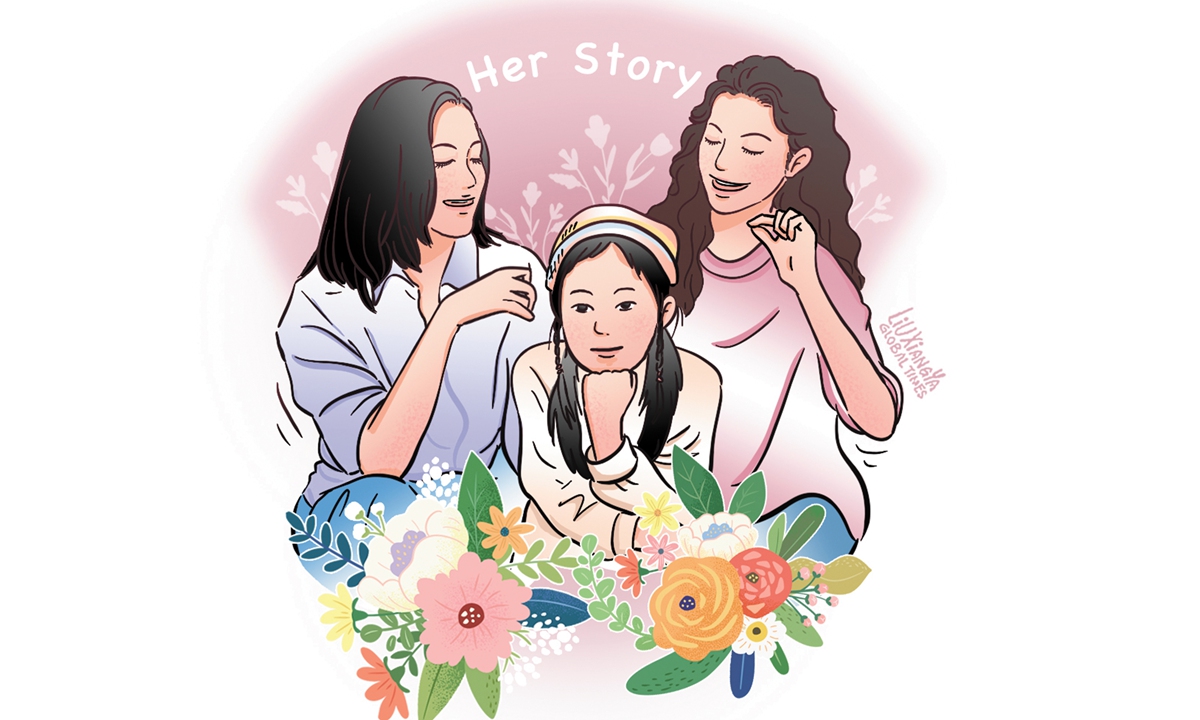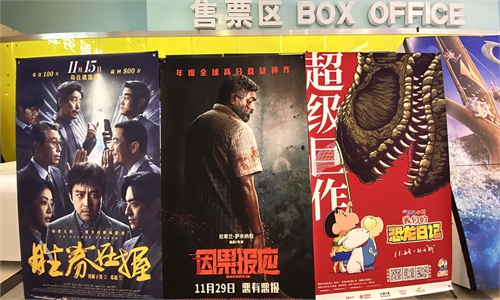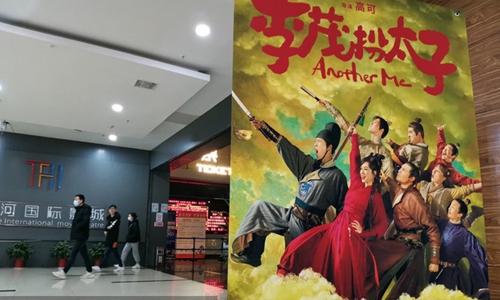ARTS / FILM
‘Her Story’ breaks taboos, redefines bonds

Illustration: Liu Xiangya/GT
Female-driven comedy Her Story is set to take the Chinese box office by storm, earning rave reviews for its bold depiction of female empowerment, friendship and novel gender dynamics.Crafted by the award-winning Shao Yihui, this film has captured the hearts of audiences with its humorous take on the complex realities of modern womanhood, offering a unique East Asian twist on Hollywood film Barbie.
With its focus on female empowerment, Her Story, debuted on November 22, has ignited widespread discussion, raking in over 200 million yuan ($27.5 million) as of Tuesday.
It boasts an impressive score of 9.1 out of 10 on review platform Douban, making it the highest-rated domestic film of the year so far.
What truly sets this light-hearted urban comedy apart is its ability to tackle serious social issues with a relaxed, humorous touch. It shines a light on the real dilemmas faced by women.
As the title suggests, the film revolves around three women of different ages navigating life in the vibrant city of Shanghai.
Their journey is one of mutual support and understanding as they seek to define their identities amid the hustle and bustle of the city.
The trio is made up of the introspective young girl Wang Moli, the artistic love-yearning Ye, and the strong yet caring single mother Wang Tiemei.
When Tiemei moves into a new home with Moli, she meets her neighbor Ye, and the contrasting personalities of these two women - one bold and adventurous, the other gentle and somewhat sensitive - create a beautiful dynamic as they confront old wounds and new challenges together.
One of its standout features is its refreshing departure from the traditional depiction of Chinese women as self-sacrificing mothers.
Instead, it presents a light-hearted yet poignant exploration of contemporary challenges, such as how single mothers balance their desires with the expectations of traditional society.
The film bravely tackles topics such as sexual consent and even breaks the "menstrual taboo" with a bold dinner scene where characters of all ages discuss menstruation humorously.
This candid exchange normalizes the conversation, stripping away the stigma in a light-hearted manner.
In a particularly creative moment, Ye uses professional recording equipment to capture the sounds of Tiemei doing household chores, turning mundane tasks into a playful guessing game with Moli.
Moli's imaginative interpretations of these everyday sounds - comparing a vacuum cleaner to a tornado and the noise of washing sneakers to quicksand - transform the drudgery of housework into something grand and meaningful, showcasing Shao's sensitivity and intelligence as a director.
Her Story offers a refreshing perspective on motherhood. It highlights the warmth and support that can flourish among friends and family, showcasing the deep bonds that form in everyday life.
The narrative kicks off with a chance encounter that sets the stage for a profound friendship among the protagonists.
When Ye is followed by a suspicious man while walking alone at night, Tiemei swoops in on her balance bike to save the day, and their friendship blossoms from this moment of solidarity.
The bond between Tiemei, Moli, and Ye becomes the heart of the story, creating a community of women who uplift one another - a reflection of the growing trend of "female mutual empowerment" in contemporary society.
While some critics have likened the film to a stand-up comedy routine filled with catchy phrases and trending memes, arguing that the movie's narrative logic needs some improvement, Her Story stands as a testament to the evolving landscape of Chinese cinema.
With a surge in female-centric narratives, more filmmakers like Shao are stepping into the spotlight, sharing their unique perspectives.
Films such as Like a Rolling Stone, which follows a retired woman on her journey of self-discovery after saying goodbye to her old life of raising grandchildren and her abusive husband, have resonated deeply with audiences, while others like Spring Tide and Song of Spring explore the contributions and struggles of women across generations, touching many.
As the market embraces these narratives and the emphasis on women's perspectives grows in China, feminist-themed films are emerging with a lighter, richer core, adding a unique voice to Chinese cinema.
Her Story not only reflects this evolution but also offers a relatable and refreshing perspective on women's lives, providing a Chinese answer to the themes explored in Barbie.
The author is a reporter with the Global Times. life@globaltimes.com.cn




